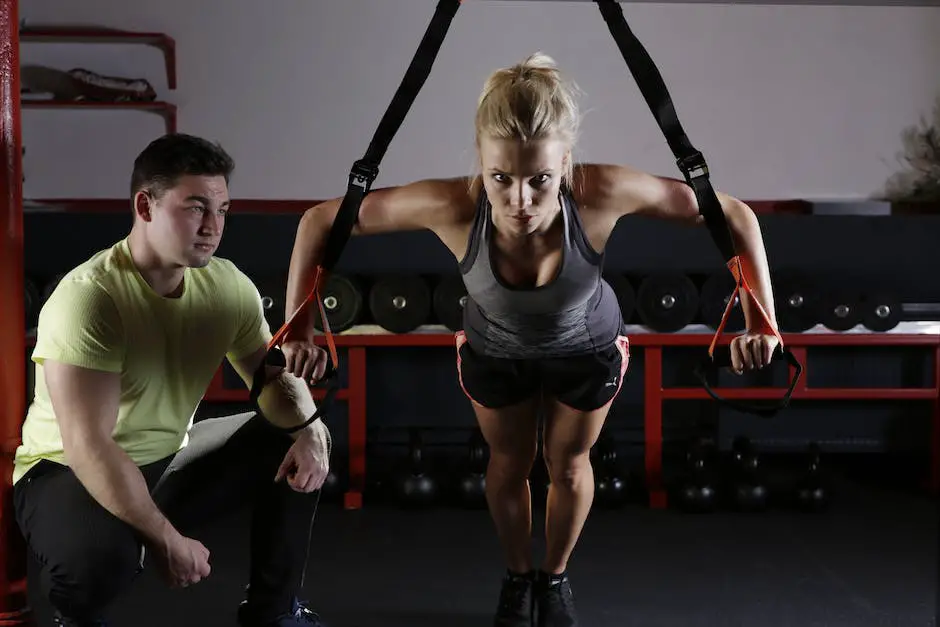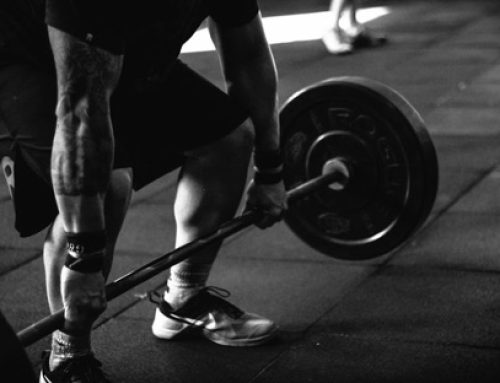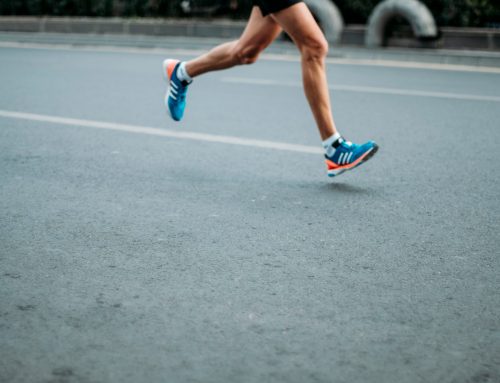Ladies and gentlemen, it’s time to put on your sweatbands, tighten those weightlifting gloves, and…stop eating? That’s right, we’re talking about the science of weightlifting while fasting! Don’t worry, we won’t ask you to give up your morning coffee or skip dinner with your in-laws. Instead, we’ll dive into the research that suggests that lifting heavy things while in a fasted state might actually be beneficial. So, get ready to lift some weights and find out if fasting is the secret to getting swole. But first, let’s grab a protein shake and get started.
Contents
- 1 The Science Behind Lifting Weights While Fasting
- 2 The Benefits of Combining Weight Lifting with Intermittent Fasting
- 3 How Fasting Affects Your Muscle Mass and Strength Training
- 4 Optimizing Your Workouts: Tips for Training While Fasted
- 5 Do Your Workouts While Fasting with These Tips
- 6 The Role of Protein in Recovery after a Fasted Weight Lifting Session
- 7 The Bottom Line: Pumping Iron on an Empty Stomach
The Science Behind Lifting Weights While Fasting
The Skinny on Pumping Iron While Fasting
So, you’re thinking about hitting the gym on an empty stomach? Welp, get ready for some major gains! Fasting before lifting weights has been shown to have some serious health benefits – but let’s break down the science behind it, shall we?
First off, lifting weights while fasting can lead to an increase in human growth hormone (HGH) levels. And no, HGH isn’t just for bodybuilders and Hollywood A-listers trying to avoid wrinkles. This hormone helps increase muscle strength, improves bone density, and even boosts your metabolism. So, with a little fasting and lifting action, you’ll be transformin’ into a lean, mean, calorie-burning machine in no time.
Another benefit of lifting weights while fasting is better insulin sensitivity. Insulin is a hormone that’s produced by your pancreas and helps your body absorb glucose (aka sugar) from your bloodstream. But when you’re constantly snacking and scarfing down Big Macs, your body can become less sensitive to insulin, which can lead to type 2 diabetes and other health issues. By fasting before you pump iron, you’re giving your body a break from insulin production and helping your cells become more sensitive to this sweet, sweet hormone. And who doesn’t love a sensitive cell, am I right or am I right?!
The Benefits of Combining Weight Lifting with Intermittent Fasting
Are you tired of feeling like a weakling during your fasting periods? Are you tired of feeling like a potato during your weight lifting sessions? The solution to both these problems is simple – combine weight lifting with intermittent fasting! And here’s why:
- Increased fat burning – Intermittent fasting turbocharges your body’s fat burning abilities. When you add weight lifting to the mix, you burn even more fat and build lean muscle at the same time. It’s like hitting two birds with one dumbbell.
- Improved energy – It might seem counterintuitive, but combining weight lifting with fasting actually boosts your energy levels. This is because fasting forces your body to use stored fat for fuel, while weight lifting promotes the growth of new mitochondria, which are the powerhouses of your cells. More mitochondria = more energy for you.
- Enhanced mental clarity – When you’re fasting, your body goes through a process called autophagy, which basically means it’s cleaning up all the junk in your cells. This includes clearing out misfolded proteins that can cause brain fog. Weight lifting also increases blood flow and oxygen to the brain, which further enhances mental clarity. So if you want to feel like a genius while lifting weights, try fasting!
But wait, there’s more! Combining weight lifting with intermittent fasting also helps regulate blood sugar levels, improves insulin sensitivity, and reduces inflammation. It’s basically a panacea for all your health woes. So what are you waiting for? Hit the gym and fast your way to greatness!
How Fasting Affects Your Muscle Mass and Strength Training
Fasting is like a box of chocolates, you never know what you’re gonna get. It’s no secret that it has become so popular these days, but does it affect muscle mass and strength training? Let’s find out!
First things first, if you’re fasting for an extended period of time, your body may start to break down muscle for energy. Let’s not panic just yet, as this usually happens after prolonged fasting, such as for days or weeks. Shorter fasting periods may not have any negative effects on your muscle mass.
Another thing to remember is that after fasting, your glycogen levels, which help fuel your workouts, may be reduced. This could lead to decreased performance during exercise. So, if you’re planning on fasting, try to schedule your workouts at the beginning of your feeding window when your glycogen levels are still high. And don’t forget to refuel with some carbs after your workout!
- Shorter fasting periods may not have any negative effects on muscle mass.
- After prolonged fasting, your body may start breaking down muscle for energy.
So, there you have it, fasting can have some negative effects on muscle mass and strength training if done for an extended period. However, if you’re planning on fasting, make sure to schedule your workouts accordingly and remember to refuel properly. As with any diet or lifestyle change, it’s always best to consult with your doctor or a registered dietitian beforehand!
Optimizing Your Workouts: Tips for Training While Fasted
Do Your Workouts While Fasting with These Tips
Fasting doesn’t only help you achieve a leaner physique, it also maximizes the effects of your workouts. But before you hit the gym without a single calorie in your tummy, take note of the following tips:
- Hydrate! Just because you’re fasting doesn’t mean you should forget to drink. Keep yourself hydrated before, during, and after your workouts. You can also add a pinch of salt and squeeze some lemon in your water to help replenish your electrolytes.
- Plan your pre-workout meal. Yes, you read that right. Even if you’re fasting, you can still have a pre-workout meal. Just make it a small one. Opt for something high in protein and low in carbs, like a boiled egg or a handful of nuts.
- Start slow and listen to your body. Your body needs time to adjust to working out while fasting. Don’t jump into an intense workout right away. Start with low to moderate intensity and gradually increase as you go along. And most importantly, listen to your body. If you feel dizzy, fatigued, or anything out of the ordinary, stop and take a break.
So there you have it, folks. With these tips, you can optimize your workouts even while fasting. Just remember to hydrate, plan your pre-workout meal, and start slow. Who knows, you might even surprise yourself with how much you can achieve while training on an empty stomach. Happy fasting and good luck!
The Role of Protein in Recovery after a Fasted Weight Lifting Session
The Importance of Protein in Recovering from a Brutal Weight Lifting Session
So you just finished a ridiculous weight lifting sesh, eh? Your muscles are shaking, sweat’s pouring down your face, and you feel like you just ran a marathon. Well, friend, it’s time for protein to work its magic and help your muscles recover.
But why protein, you ask? Let me lay some knowledge on ya. Protein contains amino acids, which are basically the building blocks of muscle. Your muscles need these bad boys to repair themselves after a workout. So if you don’t eat enough protein, you’re basically saying, “Yo, muscles, I don’t care about your recovery. You can just stay sore and weak forever.” And trust me, your muscles will definitely hold that grudge against you.
Now, you might be asking, “How much protein do I need, wise one?” Well, that depends on your weight and activity level, but as a general rule of thumb, aim for about 0.7 to 1 gram of protein per pound of bodyweight. And don’t skimp on the good stuff – make sure you’re getting high-quality protein sources like chicken, fish, and eggs. Your muscles will thank you later.
- Pro-tip: If you’re really in a time crunch and can’t chow down on a solid protein-packed meal, whip up a protein shake instead. Just make sure it has at least 20 to 30 grams of protein, and add some fruit for extra carbs to help replenish your energy stores.
- Disclaimer: This post is not sponsored by the protein powder industry (although, like, hit us up if you’re interested).
- Bottom line: Protein is key for muscle recovery after a weight lifting session. Don’t skimp on the good stuff if you want those muscles to get stronger and sexier.
The Bottom Line: Pumping Iron on an Empty Stomach
So, there you have it folks. The science of weight lifting while fasting. It’s definitely not for everyone, but if you’re up for the challenge, go ahead and give it a try. Just make sure to consult your doctor before starting any new fitness routine.
Who knows, maybe you’ll become the next Arnold Schwarzenegger. Or maybe you’ll just end up starving and cranky. Either way, at least you’ll have a hilarious story to tell your friends!
Until next time, happy lifting (or fasting, or both)!








Leave A Comment